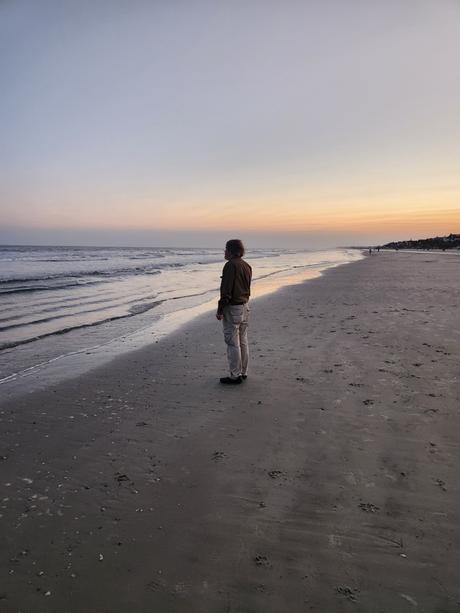Morning thoughts are different from evening thoughts. As we spin recklessly through the blackness of space on this globe, we really have no idea how consciousness works. We assume, unless some “pathology” is present, that personalities are stable. But we also think differently at differing times of the day. I’ve long observed this as the work day progresses. Anxiety tends to ratchet up during the afternoon, sometimes getting a head start in the morning. Of course, all of it will depend on whether I slept well and have rebooted properly. So the person you encounter when you see me will depend on when it is you come calling. Many people prefer to know someone is coming. Not only does it give you time to groom for the role you’re going to play, but it also allows you to prepare mentally.
I don’t see many people in the course of a day. My job is such that I do not regularly have lots of meetings—sometimes going days without any. During those times the only person I regularly see is my wife. She’s more aware than most that my morning thoughts are different than my latter-day thoughts. Those who think of me as a pessimist mostly know the me that’s been awake for several hours. The morning me is generally optimistic. And productive. That cycle for me may begin a few hours before others awake, but it’s characterized by, in a word, inspiration. The whetstone of a day grinds you down without always making you any sharper. The problems of work are generally other people’s problems, but without the benefit of seeing them. And I wonder, at what stage of morning to evening thinking are they? That changes things.
Thinking is something that is constant. It doesn’t slow down much, until the afternoon drowsies (with all that that implies—think carefully), but when it picks up again it’s quite different than morning thinking. I tend to do my writing in the morning. The freshness is important. I realize others are on different timetables and at different points in their thinking day. I wonder how much this has been studied by experts. Me, I’m an amateur thinker. I have some formal training in philosophy, but not as much as the professionals do. I’m more of an experiencer. An experiencer trying to make sense of life—or to assign it some meaning to help me get through the changes the day inevitably imposes on my thought process. There’s a reason we appreciate sunrises on this wildly spinning planet, and it has something to do with the way we think in the morning.

